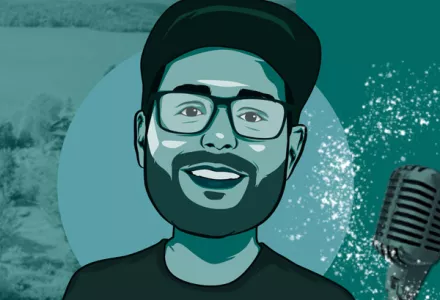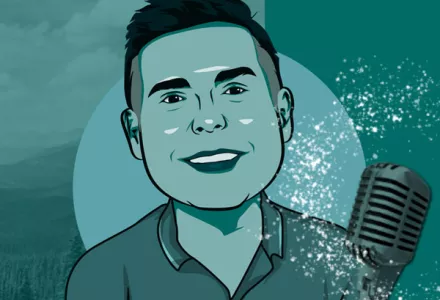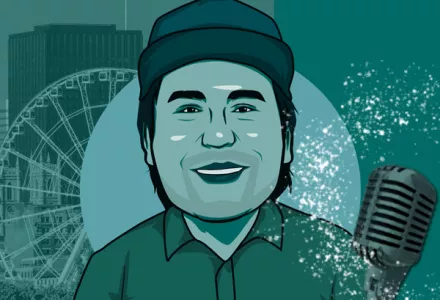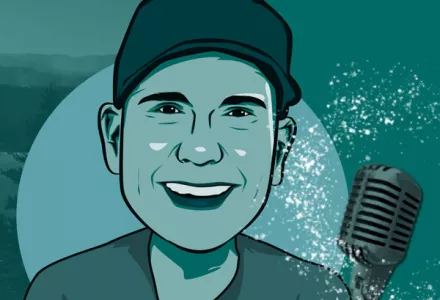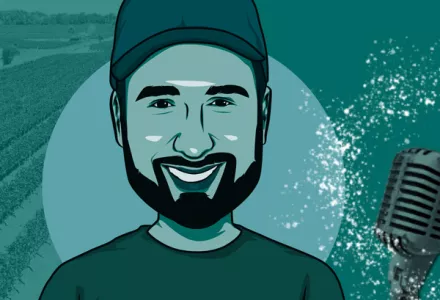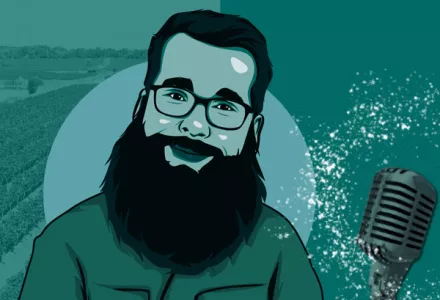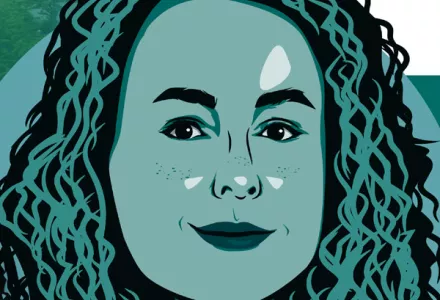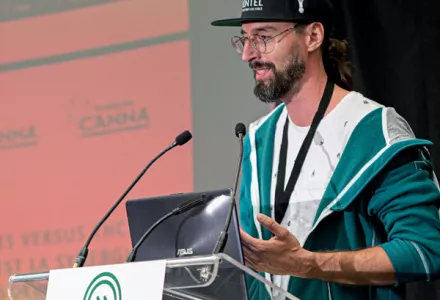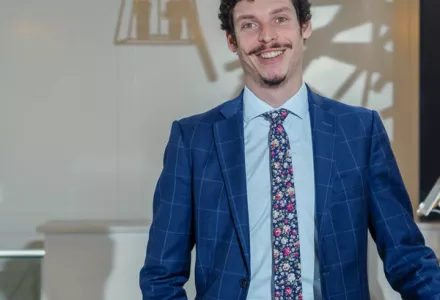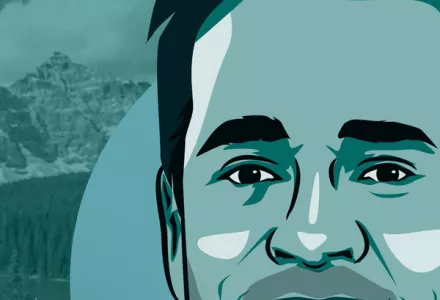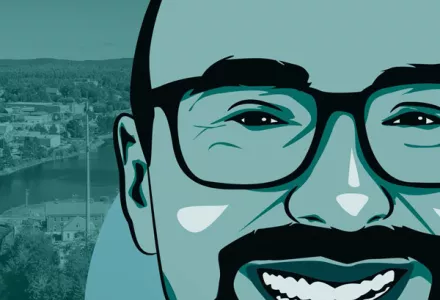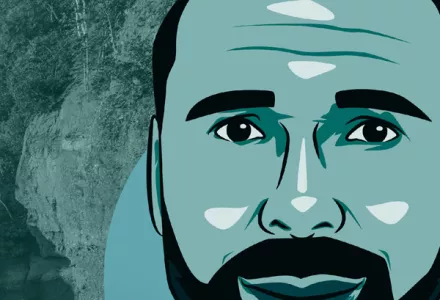At CANNA we’re excited to share passionate grower stories from across Canada that resonate with our community and inspire us to “grow big or grow home”.
THE JOURNEY
Meurig, please tell us a little about who you are.
Meurig: I'm an ISA certified arborist with a TRAQ qualification, and I am the Flower Supervisor at Zenabis Global Inc.
Arborists are experts trained in the care, response, and biomechanics of woody plants; generally analyzing one plant at a time as an individual and then incorporating the other factors in its surroundings whether it be other plants, man made structures, natural ones, or anything in between. We're different from foresters as they generally deal with forests as a resource and primarily in rural locations. This unique view on plants I believe gives arborists an advantage. Even though there is some schooling, it is primarily a hands on training where only those that truly enjoy this sort of work will continue.
I've leaned very heavily on my experiences as an arborist and it’s given me a real advantage in this new legal industry.
Day to day at Zenabis I’m in charge of 36 flowering rooms and a team of 11 people. Basically I plan the repopulation, harvest, pruning, room sanitation, aid with pest management, and make sure we’re able to bring clean quality products to market.
I also love to grow at home. Right now I'm growing Nevil's Haze, God Bud, Siberian Ruderalis, and Turkish Hash plant. My Nevil's Haze and God Bud are for seeds, while my Siberian Ruderalis and Turkish Hash plant are for experimenting in certain grow conditions with some root manipulations. I love cooking and am fascinated with propagation and tissue culture. I also grow herbs, and have: 28 bell pepper plants, 7 different herbs, 6 varieties of tomatoes, 3 different kinds of ferns, 3 spider plants, 2 yuccas, 2 bamboo plants, oyster and shitake mushrooms, 1 small palm, and a string of pearls. More to come. I spend roughly 8 hours a week if it's just regular maintenance, but I also take my time as I enjoy it.
This unique view on plants I believe gives arborists an advantage. Even though there is some schooling, it is primarily a hands on training where only those that truly enjoy this sort of work will continue. I've learned very heavily on my experiences as an arborist and it’s given me a real advantage in this new legal industry.
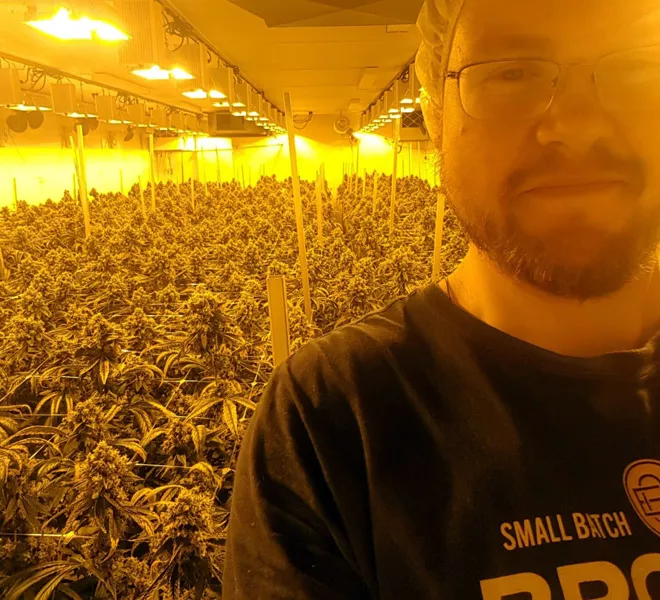
Tell us the story of how you became a passionate grower.
Meurig: My mother actually was the one with the green thumb growing up and would have our home loaded with a variety of plants. She would talk about them often as though they were almost people in a sense. I didn’t necessarily like gardening when I was younger but my brother and I were constantly exposed to it. When we moved out, she began bringing us cuttings and telling us how to take care of them. Still to this day she brings us cuttings and other plants for us to take care of and remind us of home. She is definitely responsible for getting my brother and I hooked on indoor gardening.
It’s when I began doing some tree work and taking courses in arboriculture that I ended up falling in love with trees and all woody plants. So I took on a 3 year apprenticeship in BC for certification and moved to Vancouver Island to work with Broken Coast Cannabis as the master grower was an arborist as well.
I fell in love with it.
Cannabis is a semi hard wood plant so I figure I’m a semi expert [laughs] … It grows much quicker than a tree would but responds in the same way … so I rely a lot on my training as an arborist. It’s such a simple plant that it's open to so many manipulations, creating an endless field of study and experimentation.
How has your passion for growing evolved over the past 2 years?
Meurig: I would say it exploded! Even though we can say there are some clear issues with legalization, the benefits are the open floor conversations we can have and open advertising of different equipment, grow products, different techniques, etc.
I'm exhausted after attending a conference or exhibition as I'm getting into one interesting in depth conversation after another. I've also had the fortunate opportunity to be able to run teams of other passionate people, be able to teach what I have learned over the years, and hear outside opinions of certain techniques or what they've found works for them.
I would say my passion for growing has exploded over the last 2years! Even though we can say there are some clear issues with legalization, the benefits are the open floor conversations we can have and open advertising of different equipment, grow products, different techniques, etc.
A PASSION
FOR GROWING
What would you consider your favorite part about the entire growing process?
Meurig: Mother shaping and trying different propagation techniques to constantly try to increase my success rates with different styles.
A close second is steering the plants with the correct nutrient feed and dialing in the perfect recipes for that strain.
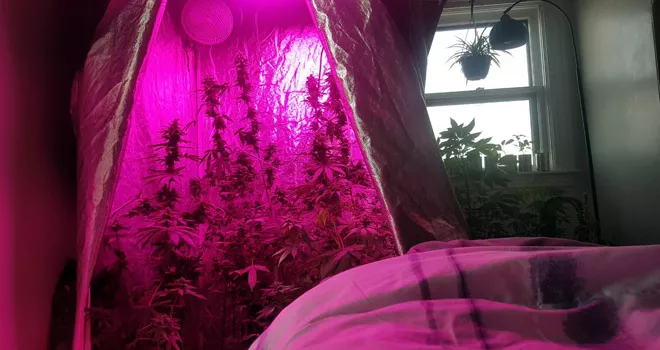
What would you consider to be your least favorite part of the entire growing process?
Meurig: I believe that the hardest part about growing cannabis is dealing with people. Most gardeners choose to work with plants to get a break from people, but in this new legal industry there are multiple departments that require to work together as a team to bring a quality product to market.
What do you look for most when it comes to growth nutrients and why?
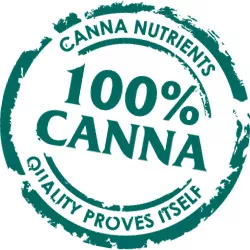
Meurig: For personal production, I prefer to grow as natural as possible, focusing more on building the right soil conditions and organic fertilizers.
Professionally in hydroponic systems, I look to see how clean the product is, does it need agitation, how easy it is to dissolve or mix, if there are any by-products (and how they affect the plants, substrate, and irrigation system), and how long until particles begin to form when applying low heat and stagnation.
My mother always says “never cheap out on bedding, footwear, and equipment that make you money”. Everyone says they're high quality so it's up to the consumer to determine what high quality means to them and that means thoroughly researching products.
What differences do you see when growing with clean high quality products vs the alternative?
Meurig: I believe it’s up to the consumer to determine what high quality means to them and that means thoroughly researching products. Exhibitions and conferences are great ways to meet experts in their fields and ask them questions about their products and why they think it's vital for you. When I first got into legal cannabis production I was fortunate enough to meet Vince Gagné with Biofloral early on and he’s been a great resource when it comes to not only discussing products I'm unfamiliar with but also ones I have never heard of before. It becomes much easier to focus on quality when your supplier is too.
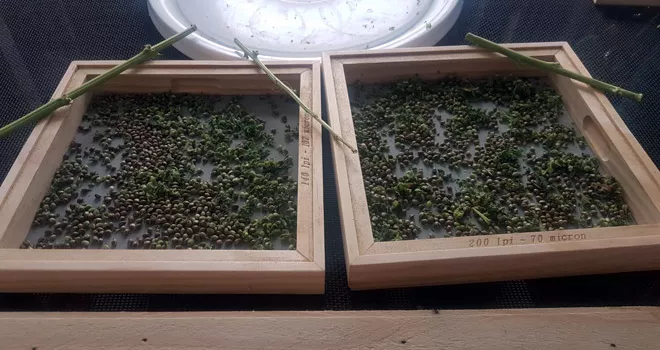
What have been some of the biggest challenges you’ve faced?
Meurig: I'd say the biggest challenge would be this “half” legalization. Even though cannabis is “legalized” there are a surprising amount of laws and regulations portraying cannabis as something to be feared instead of respected as a plant.
You can abuse its effects, but I feel as if some leftover points from the “reefer madness” era helped guide some of these regulations.
If you had a direct line to your consumer, what’s one thing you would want them to know about the entire growing process?
Meurig: I would like them to know that there is a small army of people truly dedicated to providing them a clean and quality product. That it’s our chance to really share our passion with you. I truly think most would be surprised at the level of commitment the majority of legal production facilities have to creating a good product for our customers.
In years to come, what would you like to be recognized for within the growing community?
Meurig: To be recognized alone would be a great achievement. As an honest grower that truly is on a lifelong journey to learn more about woody plants but in particular the Cannabis plant. Growing healthy plants with a distinct purpose of pushing envelopes and creating clean high quality end products, whether it be dry flowers or hash.
Who is someone you look up to in the Cannabis industry and why?
Meurig: I always appreciate genuine and humble people that aren't afraid to say “I don't know enough/anything about that”.
Frenchy Cannoli springs to mind right away. I very much align with his outlook on cannabis, cannabis production, hash production, and his quality rating. I had the chance to meet, listen, and learn at his workshop at the Grow-Up convention in Niagara in September and I wrote roughly 60+ pages of notes and recorded his talks as best as possible.
Kevin Jodrey is also another professional I can listen to for hours and learn a wealth from. I also had the opportunity to meet and listen to him at the same convention.
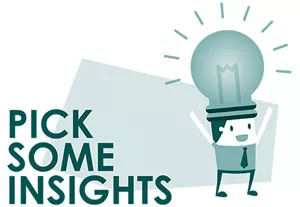
What are some questions consumers should be asking?
Meurig: Ask around about the producer and see what others say, obviously take it with a grain of salt but if you have 13 people stating it made them overly paranoid then there's a good chance it will happen to you.
Ask how long the product has been on the shelf. Do some research before having a dialogue with a budtender to avoid being left behind with terminology.
Ask what their top sellers are and why.
Don't be afraid to ask “dumb” questions, this usually leads to valuable information.
What’s a myth you would like to debunk?
Meurig: I mean anything from the “reefer madness” era should be revisited with a fine toothed comb, as well as any of the other ridiculous claims/comments that you hear from some people.
- I would like to touch on is the misconception that the legal market uses too much pesticides. As an IPM specialist, I can ensure that Health Canada has only approved the safest of pesticides for cannabis production. In fact they are incredibly weak and issues will require more than just a chemical application to solve. The facilities that have been caught using unapproved pesticides shouldn't represent the legal market as the legal market is designed to follow laws and regulations. When you see pictures of “excessive” PPE for chemical applications, it's because we are following the law to have proper protection during applications. For example, even though insecticidal soap is on the weaker side of pesticides and you can buy it at any department store, you'll still see technicians load up on PPE to ensure they themselves are free of the pesticide. Always ask your cannabis provider, whether it's legal or illegal, about their chemical application usage.
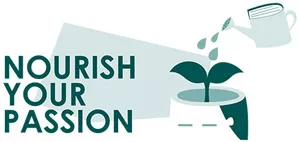
Meurig’s recommendations
First of all, pick information and people that will explain to you WHY to do something not necessarily HOW to do something. If you want to learn about plants then pick plant based resources. Books on biology, chemistry, horticulture, arboriculture, etc are all studies that can better explain plants. Keep a detailed journal so you're not wasting your experiences. Bell pepper plants are good practise plants to experiment with as they generally require the same attention and resources but stricter. Authors I follow and some I've had the great pleasure of having conversations with are:
- Peter Wohlleben,
- Ed Rosenthal,
- Frenchy Cannoli,
- Jorge Cervantes,
- Dr. Ed Gilman,
- Dr. Alex Shigo,
- Kevin Jodrey,
- Robert Clarke.
There are many great podcasts/blogs/vlogs to choose from, but the ones I particularly follow are ones that have real conversations regarding cannabis production rather than just hyping cannabis. One such podcast is “Future Cannabis Project”. As an amateur herbalist, I read a lot of guides about how medicinal plants grow and the ideal times for harvest for each. I encourage people to read about topics that are related to cannabis but do not necessarily mention it. For example microbes in the soil and soil building, young woody plant training, guides on vegetable/fruit/tobacco production, etc.




